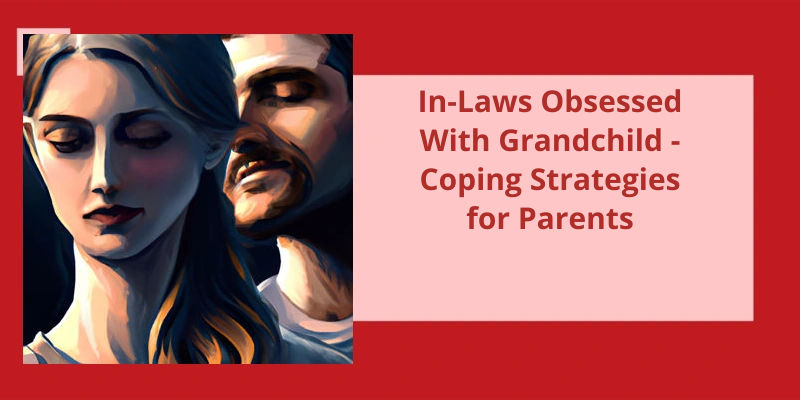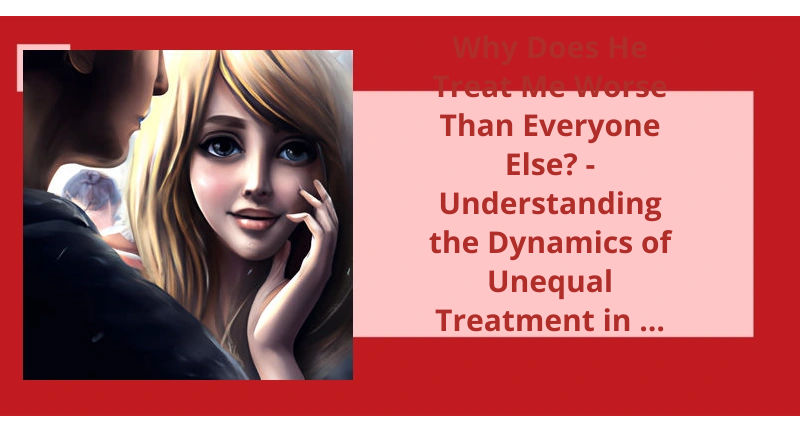Feeling drained and unappreciated is a common experience for individuals who give too much without receiving anything in return. It can be exhausting to constantly put others' needs before one's own, only to be left feeling empty and unfulfilled. At some point, the realization may hit that it's time to learn how to stop giving too much. This can be a daunting task for those who struggle to say no or set boundaries, but it's an essential step towards living a more fulfilling and balanced life. In this article, we will dive deeper into the importance of setting boundaries, being assertive, and saying no without feeling guilty or selfish.
Why Is Giving Too Much Bad?
While giving is often seen as a positive trait, it’s important to recognize the potential downsides of over-giving. When we constantly put others needs before our own, we risk neglecting our own physical, emotional and mental health. This can lead to burnout, stress, anxiety and other negative consequences. By setting boundaries and prioritizing self-care, we can strike a balance between giving and receiving, ensuring that we stay healthy and continue to make a positive impact on those around us.
One common challenge for givers is the tendency to feel guilty when saying no or setting limits. Many givers are people-pleasers by nature, and may worry that they’ll let others down or appear selfish if they don’t go above and beyond. However, it’s important to remember that saying no can actually be a sign of self-respect and self-love. By being honest about our own needs and limitations, we can avoid over-committing and ensure that we’re able to follow through on the commitments we do make.
At the same time, it’s important to recognize that there are many benefits to giving and helping others. For example, research has shown that giving can have a positive impact on mental health, helping to alleviate stress, anxiety and depression. However, in order to experience these benefits, it’s important to approach giving in a balanced and sustainable way, rather than constantly putting others needs before our own.
The Importance of Setting Boundaries in Giving and What Are Some Ways to Do It Effectively.
- Start by understanding your limits and capacity to give.
- Communicate your boundaries clearly to others.
- Don’t hesitate to say “no” when necessary.
- Learn to delegate tasks or responsibilities effectively.
- Practice self-care and set aside time for yourself.
- Don’t feel guilty for prioritizing your own needs.
- Avoid overcommitting or taking on too much at once.
- Be assertive and stick to your boundaries, even if others push back.
- Seek support from loved ones or a therapist if needed.
It’s common to think that giving too much in a relationship means we’re being selfless and considerate towards our partner. However, the truth is that our excessive giving can be a way of manipulating them without us even realizing it. This is why it’s important to reflect on our actions and understand the root cause of our behavior.
What Does It Mean to Give Too Much in a Relationship?
When we give too much, we’re essentially taking away the other persons opportunity to contribute to the relationship and grow as an individual. In fact, it can be quite damaging to both parties involved. As the giver, we may feel resentment and exhaustion from constantly pouring ourselves into the relationship, and the receiver may become complacent and reliant on our excessive generosity.
This can create an unhealthy dependency and a lack of balance in the relationship.
It’s important to note that giving isn’t inherently bad in a relationship. In fact, it can be a wonderful way to show love and support for our partner. However, it becomes problematic when it’s at the expense of our own well-being and when our giving isn’t reciprocated or appreciated by our partner.
Ultimately, it’s important to have a clear understanding of our own boundaries and needs in a relationship. We must communicate these needs to our partner and be willing to compromise and work together to create a healthy and balanced dynamic.
It’s important to prioritize our own well-being and communicate our needs with our partner in order to create a healthy and balanced relationship.
It’s not uncommon to feel like giving too much of ourselves can be exhausting and draining. But the solution isn’t to simply stop giving altogether. Rather, it’s about finding a balance and becoming more self-aware of our giving habits. In order to do so, we need to ask ourselves some important questions and take a critical look at our motivations for giving. By setting boundaries and prioritizing the things we truly care about, we can learn to give without sacrificing our own well-being.
How Do I Stop Being Too Giving?
It isn’t easy to stop being too giving. It requires a deep level of self-awareness, honesty, and commitment to making changes. The first step is to ask yourself questions about why you feel the need to give so much. Is it a need for validation or approval? Is it a way to avoid dealing with your own emotional needs? Understanding the root of your giving habits is crucial to breaking the pattern.
Once you’ve a better understanding of your giving patterns, it’s time to become more self-aware. This means paying attention to your thoughts, feelings, and actions in the moment. When you feel the urge to give, take a pause and ask yourself why youre doing it. Is it because you genuinely want to help, or is it because you feel obligated or guilty?
It’s also essential to look candidly at the people in your life. Are they taking advantage of your giving nature, or are they grateful for your help? Establishing healthy relationships means setting boundaries and communicating your needs clearly. Dont be afraid to say no or to ask for what you need. Remember, you can’t pour from an empty cup.
Looking candidly at yourself is another crucial step in stopping the habit of over-giving. This means acknowledging your own unmet needs and finding healthy ways to meet them. For example, if you feel unappreciated, try practicing gratitude and self-love instead of seeking validation from others.
Another way to care for yourself is by giving time and energy to things you love. This could be a hobby, a volunteer organization, or spending time with people who make you feel good. Doing things that bring you joy and fulfillment will naturally diminish the need to over-give.
Finally, learning from your experiences is key in breaking the cycle of over-giving. Take note of what triggers the behavior and what situations bring out the best in you. Pay attention to how you feel physically and mentally when you give too much. Over time, you’ll learn to recognize the signs and take proactive steps to avoid falling back into old patterns.
Setting Healthy Boundaries in Relationships and Recognizing When Others Are Taking Advantage of Your Giving Nature.
- Clarify your values and priorities
- Communicate your needs and expectations clearly
- Be assertive in expressing your boundaries
- Learn to say “no” without feeling guilty
- Recognize when someone is crossing your boundaries
- Take responsibility for your own happiness
- Surround yourself with supportive and respectful relationships
- Take time to reflect and reassess your boundaries regularly
Source: Why over-giving can cause burnout and how to stop – LinkedIn
However, while generosity is generally viewed as a positive trait, unrelenting generosity can have negative consequences for both the giver and the recipient. In this article, we will explore the concept of unrelenting generosity, it’s potential drawbacks, and how to strike a healthy balance between giving and taking.
What Is It Called When Someone Gives Too Much?
It’s a trait that’s often admired and praised by society, but it can also be a source of concern when it reaches extreme levels. People who exhibit unrelenting generosity may sacrifice their own needs and well-being for the sake of helping others, which can lead to burnout, resentment, and even psychological distress.
This can lead to a sense of isolation and loneliness, as well as a lack of balance in their relationships.
Many people are able to balance their generous nature with self-care and boundary-setting, and this can lead to a sense of fulfillment and purpose in their lives. The key is to recognize the potential pitfalls of excessive giving, and to take steps to ensure that it doesn’t become a self-destructive pattern of behavior.
Being a giver is a selfless act that requires empathy, compassion, and a genuine desire to help others. Instead of being solely focused on one’s own needs, givers put the needs of others first and strive to make a positive impact in the lives of those around them. This innate desire to contribute without expecting anything in return is what sets givers apart from others. So, what makes a person a giver? Let’s explore this concept further.
What Makes a Person a Giver?
What can I do to make their day better?”. Givers have a natural inclination towards empathy and compassion. They see the world beyond their own needs and actively seek out ways to contribute positively to the lives of others. For givers, the reward comes in the form of the positive impact they’ve on others, rather than any potential benefit they may receive in return.
Givers tend to value relationships over personal gain. They invest time and effort into building meaningful connections with those around them. This approach has a reciprocal effect, as others are naturally drawn towards the authenticity and warmth exuded by givers. The act of giving is often a key component in the building and strengthening of relationships. By prioritizing the needs of others, givers are able to connect on a deeper level and establish stronger bonds.
Givers aren’t motivated by external validation or recognition. Instead, they derive a sense of fulfillment from the act of giving itself. The impact that givers have on the lives of others often goes unseen, and the act of giving is usually done with little fanfare or acknowledgement. Givers don’t seek to receive recognition or praise for their actions.
The Benefits of Being a Giver: How Giving Back Can Improve Your Mental Health and Well-Being
- Increased feelings of happiness and fulfillment
- Reduced stress and anxiety
- Improved self-esteem and sense of purpose
- Strengthened relationships with others
- Increased empathy and compassion
- Improved physical health
- Enhanced spiritual well-being
It’s no secret that being a generous and giving person can feel incredibly rewarding. However, what many fail to realize is that there’s such a thing as giving too much. When a giver’s actions are constantly taken for granted or exploited, feelings of resentment, fear, and anger can begin to fester. In this article, we’ll explore the effects of over-giving and how to set healthy boundaries for yourself.
What Happens When You Give Too Much?
They may start to question the value of their own worth and feel unappreciated or undervalued. Over time, this can lead to burnout and exhaustion, which can be difficult to overcome. Moreover, giving without boundaries can create a cycle of dependency, not only for the recipient but also for the giver. When the giver sets the expectation that they’ll always be available to meet the other persons needs, it can become a difficult habit to break. It can make the recipient feel entitled to the givers time, attention, and resources. In the long run, this can be detrimental to the relationship, as it creates an unequal dynamic that isn’t sustainable.
Additionally, when a giver gives too much, they may feel guilty for not being able to meet the recipients expectations. This can lead to a sense of obligation and a fear of disappointing others, which can result in the giver sacrificing their own needs and wants for the sake of others. This kind of self-neglect can be harmful and interfere with the givers ability to lead a fulfilling life.
Conclusion
Remember, it's important to take care of yourself, and that means being able to recognize when you're giving too much and not receiving enough in return. It's okay to prioritize your own needs and say no to others, especially if it means protecting your own well-being. Learning how to stop giving too much to others is a process, but with practice and patience, you can become more comfortable setting boundaries and asserting yourself. Ultimately, the key is to strike a balance between giving and receiving, and to ensure that your relationships are mutually beneficial. So if you're feeling exhausted and unappreciated, remember that you’ve the power to change that – just by learning how to say no.






